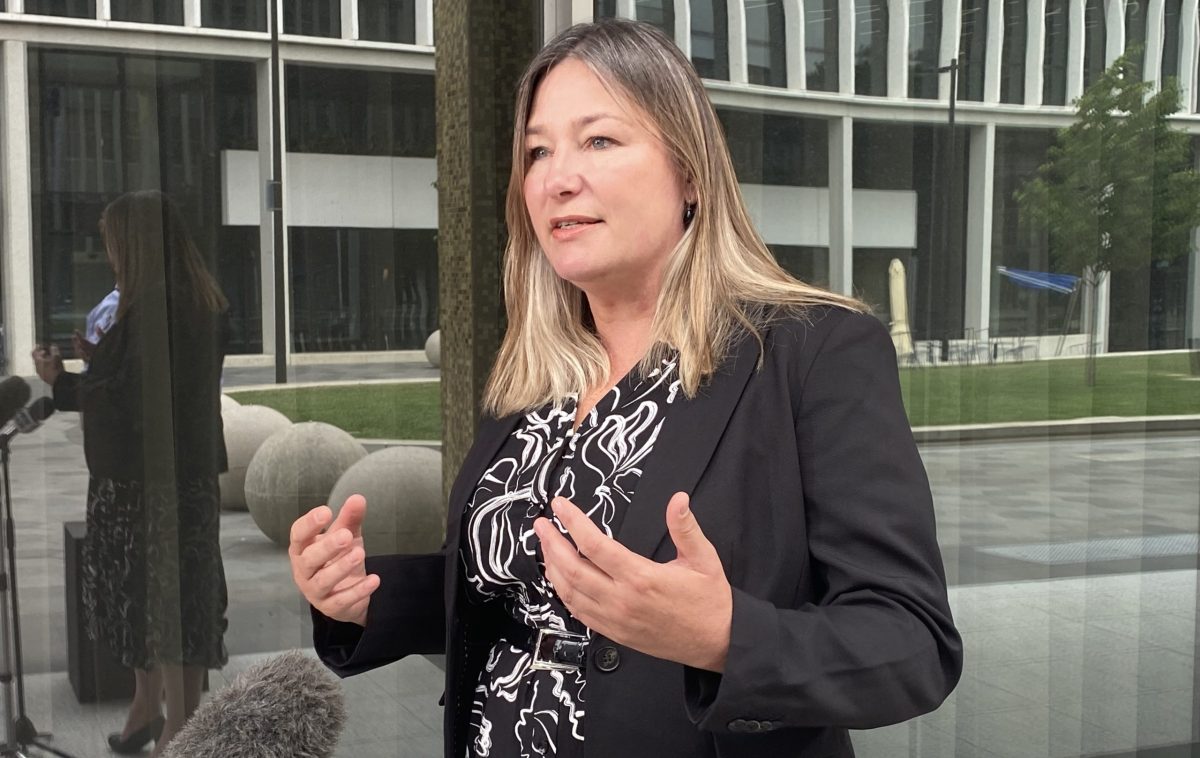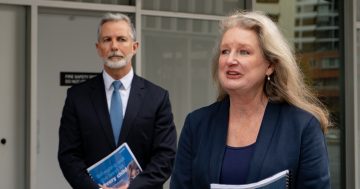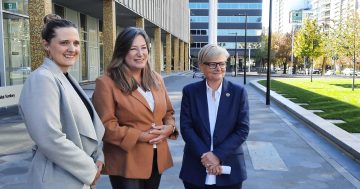
Education Minister Yvette Berry will be handed the Expert Panel’s report on 30 April. Photo: Claire Fenwicke.
After years of warnings that the ACT’s vaunted education system is on the slide, the government’s independent inquiry into literacy and numeracy could be the circuit breaker needed for a change of strategy in the Territory’s schools.
The recommendations of the Expert Panel, due to report at the end of the month, will be closely examined to see which narrative has been accepted – a world’s-best public school system or one captured by faddish education theories, unsupported by evidence, that are leading it down a road to underperformance and children being left behind.
Whenever ACT public school performance has been criticised, Education Minister Yvette Berry has tended to circle the wagons.
But the inquiry she launched may be a sign that even such a staunch defender of our public schools has seen and heard enough to question the rosier view of ACT education.
Or maybe it was an opportunity to debunk a few myths, as the Australian Education Union said in its submission.
Perhaps one myth that needs to be debunked is that the explicit instruction or direct teaching approach that many are now calling for is regressive, simplistically going back to basics, and that the salad days of creativity and self-inquiry will be over.
The recommendations will depend on what weight the panel gives to each of the 71 submissions, most of which want change.
But there is a small number of submissions from highly placed and reputable academics, some connected with the influential Foundation for Learning and Literacy, who insist the public school system is on the right track despite mounting statistical and anecdotal evidence that standards are falling.
They would of course, given their fingerprints are all over the current literacy and numeracy strategies, as consultants, principals, directorate bureaucrats and teacher trainers.
How the Expert Panel views their contributions compared with those backing a switch to explicit teaching methods, particularly in the introductory years, will be crucial.
The long reach of the prevailing orthodoxy in the ACT system presents an enormous challenge to the Territory’s politicians who rely for the most part on expert knowledge to make decisions.
The ACT is now more than halfway through its 10-year Future in Education Strategy, in which it has invested much economic and human capital.
To admit that this strategy – with its focus on inquiry-based learning, student agency and balanced literacy theory – may be flawed could be too much for the Minister and the directorate.
What could happen is that Ms Berry accepts the recommendations and then just tinkers at the edges.
Both Ms Berry and the directorate continue to argue that our teachers do use explicit instruction, as part of their toolbox, only one of several methods at their disposal.
In practice, though, it seems, according to some submissions, that the dominant culture prevails and that some teachers are actually deterred from using direct teaching.
The inquiry also revealed increasing disquiet at the decentralised, autonomous structure of the ACT school system, in which individual schools do their own thing, producing wide and sometimes dramatic variance that can be a nightmare for parents and children to navigate.
This can be due to the local demographic and the motivation of the parent group. For example, some ACT schools have adopted the more demanding International Baccalaureate at primary level, perhaps in reaction to the current system.
Students moving into such a school then or later at high school can struggle, with parents wondering what they have been learning.
Bringing ACT schools into a more unified and reliable system, and relieving them of their onerous administrative burdens to free up teachers and principals, should be a priority.
That should be the easy part.
Modifying years of theory and practice, overhauling teacher training and reforming the directorate will be a mammoth task.
But more and more parents are alarmed by their children at worst failing to learn or settling for mediocrity, and are prepared to pay for a better deal in the private system.
The ACT’s Catholic schools are seeing solid results from its Catalyst explicit teaching program after seeing too many kids falling through the cracks.
The public system also needs to arrest its decline by adopting evidence-based approaches that actually work. Success is the best way to engage students and equip them with the tools to extend and deepen their studies.
It doesn’t mean abandoning other learning strategies, stifling creativity and initiative but ensuring there is a platform of basic knowledge on which to build.
That will be the best way to ensure equity, which is also going backwards.
The other motivator for Ms Berry is that this is an election year, and the Opposition is already armed with a policy to overhaul literacy and numeracy strategies.
Business as usual will be disastrous for the public school system and the children it serves.




















